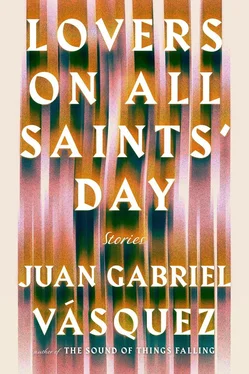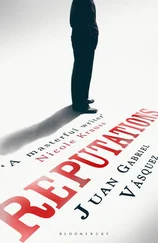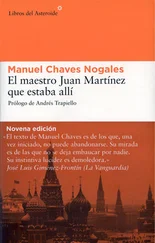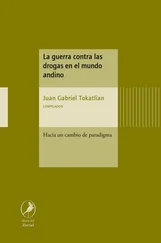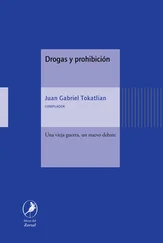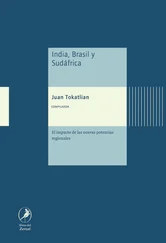I dialed Fauchey’s number three times. A recording kept saying the telephone was switched off or out of range.
Then I phoned my father. I put up with his preliminary sarcasm, the indirect complaints about my absence — he asked if I was coming to take revenge after my banishment to the Isle of Ur — and I put up with the terrible excuses he offered for not seeing me: activities he gave up after my mother left, seeing friends who’d gradually left him alone since he started drinking. I didn’t hang up, despite his comments, and maybe that’s why my proposal had an air of a considered resolution, not of affection or nostalgia, impressions that would have provoked his flight.
“I was planning to stay home this weekend anyway,” he’d told me. “Come on over, bring your wife and a bottle of whiskey.”
—
MY FATHER’S BUILDING is in a neighborhood of cobbled streets, which is nonetheless hostile and dark. There’s lots of graffiti, but not the ingenious epigrams you might see in other cities around the world, more like abstract signatures that look a bit like battle crests. The apartment has plaster walls, and the neighbors’ moans of pleasure or confrontations are, more than merely audible, shameless or intrusive. I hear, before knocking on his door, the movements of a tired body. My father has aged: he is no longer the man whose solidity was visible in the strength of his back, in the determined and sure expression in his Bedouin eyes. In his youth he was a boxer; I never learned to raise my fists, and as soon as I had enough words to invent my own philosophy, I considered him barbarous and atavistic for wanting me to assume poses seen on a Greek amphora. But I never told him that; I’d never had the courage to confront him in ways that obliged me to hold his gaze. When he opens the door, I think he doesn’t look like he’s been drinking, and the fear that his behavior will shock Viviane, or make her regret even more having come with me, disappears. My father is wearing a brown corduroy overcoat with patches on the elbows and twill cotton trousers of a vague gray. “Les enfants,” he greets us. But he does not invite us in.
“I feel like going out,” he says. “There’s a café here on the corner as bad as any other.”
We go back down the stairs, following him. He’s losing his hair: a sparse patch is visible among the gray curls on his head. I point it out to Viviane; she nods and smiles a little. From the other side of a wall we hear the voice of a man saying something in a language I didn’t understand.
“Fucking gypsies,” says my father. “When will they get used to talking like normal people. Did you walk here?”
He doesn’t look at us when he asks this question, and I don’t immediately realize he means us.
“No, we took the metro, monsieur,” Viviane says.
“Lazybones,” says my father. “How can you go down into that filthy tube on a day like this?”
The owner of the Café de la République, I discover, knows my father as well as a lifelong friend. He himself opens the door for us, and the four of us walk to a corner table wedged between the slot machine and the Formica counter, at the back. The coppery mirrors reflect a stained image back at us. It’s obvious this is my father’s table: whenever he arrived somewhere for the first time, he worried about where to sit, saying that customers who waiters identify with their own tables get better service, get to make calls — the telephone is an old-school model that still accepts coins — and can use the washroom even if they haven’t ordered anything. Only once we’re sitting down does my father ask me what’s on my neck.
“Nothing, a little swelling,” I tell him. “I’m on antibiotics, it’ll be fine.”
He doesn’t ask anything more. His curiosity has been satisfied.
It’s been so long since I last saw him that I’ve almost lost the habit of feeling intimidated: experiencing that sensation again might have annoyed me, but today timidity is far away, separated from me like a frog pinned out, ready for dissection. My father begins by ordering three glasses of cider — he doesn’t consult us, doesn’t ask what we want — and the serious stuff soon begins. A bottle of Four Roses appears on the glass table, among viscous circles and cigarette ash.
Viviane, aware that her role consists of filling with dialogue the silences that have always flowed between my father and me, begins to talk. Her talent for choosing phrases, for showing interest in other people’s concerns without appearing contrived or fake, for expressing sharp opinions on matters totally alien to her, has never ceased to surprise me. She tells my father he should go back to journalism, asks him if he doesn’t miss contact with reality.
“The problem is that reality’s a penniless whore,” he says. “People complain because the papers manipulate information and all that, but the truth is that reality couldn’t care less, as long as it gets well paid for being written about.”
He lifts his glass of whiskey to his lips, and the slot machine lights blink in the liquid and turn it into a urine sample for medical tests.
“That’s why it’s better to devote yourself to fiction, like this one.”
I haven’t devoted myself to fiction. I’ve published one travel book, after a short journey around Tibet, and the royalties have allowed me to pay the rent punctually and go to the cinema occasionally, and I get by, in the meantime, thanks to the contract I’ve signed for two more books. My father is a man who always wanted to write, and didn’t manage it. He worked as a journalist, first conducting conventional interviews for Libération and then, before my mother’s departure, writing more personal crónicas (literary chronicles, they used to be called) with the devotion of someone who’s just discovered his destiny. He must have read cheap translations of Tom Wolfe books dozens of times, and ended up writing two or three pieces his colleagues respected. Then, one Saturday as we were coming back from the racetrack, my father began to speed up a couple of blocks from home. I don’t know how he guessed, or if some specific fact allowed him to link a chain of coincidences ending with the incredible deduction that, over the course of that morning, my mother had left. But when we got to our building, he had only to greet the concierge to imagine what the mailbox would have confirmed. He didn’t even bother to open her parting letter. He already knew what it said, he told me later: it was the same as his last arguments with my mother.
He stopped working for several months. He ran out of money; the pressure of his obligations weighed heavily on him. Then something resembling a resurrection occurred, because he returned to the Observateur with a magnificent story on the most notorious fraud in the history of French sport. A popular singer, known to gamble, was implicated, as was a former functionary of de Gaulle’s government. I don’t remember how much he got paid for that article, but it was an excessive sum; offers began to arrive from all over, and I remember finding envelopes from Esquire and Harper’s in the mailbox. One day, his editor came to see him at home. I opened the door. A man in jeans, a silk shirt, and a jacket with patches on the elbows came in and said hello to my father. “Letters have arrived at the magazine,” he said. “I need to verify the facts in your text or we’re going to get sued.”
“I don’t understand,” said my father. “What do you mean?”
“Don’t look at me like that, man, I’m not questioning anything. Pierre hasn’t been able to verify your facts or find the informants you quote.”
“But I did. I found them and I talked to them. I thought you were on my side.”
Читать дальше
